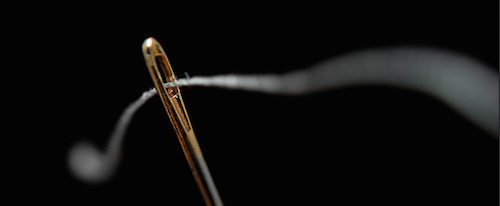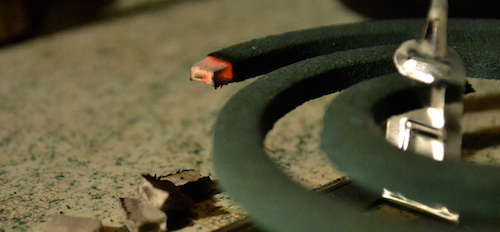Nicholas Carr's Blog, page 22
April 11, 2015
Write-only
Digital textuality offers us the chance to restorecommentarytoits pre-modern place as the central scholarly genre.
Recent technologies enable a renewal of commentary, but struggle to overcome a post-Romantic belief that commentary is belated, derivative. …
If our textual technologies promote commentary but we resist it, we will achieve a Pyrrhic victory over our technologies.
The main difference between our moment and the lost world of pre-modern commentary that Ja...
Comments on commentary
Digital textuality offers us the chance to restorecommentarytoits pre-modern place as the central scholarly genre.
Recent technologies enable a renewal of commentary, but struggle to overcome a post-Romantic belief that commentary is belated, derivative. …
If our textual technologies promote commentary but we resist it, we will achieve a Pyrrhic victory over our technologies.
The main difference between our moment and the lost world of pre-modern commentary that Ja...
April 2, 2015
The illusion of knowledge
The internet may be making us shallow, but it’s making us think we’re deep.
A newly published study, by three Yale psychologists, shows that searching the web gives people an “illusion of knowledge.” They start to confuse what’s online with what’s in their head, which gives them an exaggerated sense of their own intelligence. The effect isn’t limited to the particular subject areas that people exploreon the web. It’s more general than that. Doing searches onone topicinflates people’ssense of...
April 1, 2015
The robot pharmacist
If you want to understand the complexities and pitfalls of automating medicine (and professional work in general), please read Bob Wachter’s story, adapted from his new book The Digital Doctor, of how Pablo Garcia, a 16-year-old patient at the University of California’s San Francisco Medical Center, came to be given a dose of 38 antibiotic pills rather than the single pill he should have been given. (Part 1, part 2, part 3; part 4 will appear tomorrow.)Pretty much every problem with computer...
March 31, 2015
Twilight of the idylls
The Silicon Valley guys have a new hobby: driving fast cars around private tracks. They love it.“When you’re really in the zone in a racecar, it’s almost meditative,” Google executive Jeff Huber tells the Times’ Farhad Manjoo. AddsYahoosenior vice presidentJeff Bonforte, “Your brain is so happy that it washes over you.” The Valley guys are a little nervous about the optics of their pastime —“Try to tone down the rich guy hobby thing,” angel investor and ex-Googler Joshua Schachter instructsM...
March 27, 2015
History and economics, simplified
Cub economist Marc Andreessen has been thinking again:
I understand that data doesn’t explain everything, but in this particular case I would really, really like to see the data that Marc has assembled to back up his argument.
March 26, 2015
A litmus test for technology critics
Evgeny Morozov haswritten, in The Baffler, a critique of technology criticism in the guise of a review of my book The Glass Cage. He makesimportant and valid points, as he always does— Morozov’s intellect is admirablyfierce and hungry —but his conclusions about the nature and value of technology criticism arewrong-headed, theirimplicationspernicious. Morozov wants to narrow the sights of suchcriticism, to declare as invalid any critical approachthat isn’t consistent with his own point of vie...
March 25, 2015
A symbiosis of surveillance
“Morals reformed—health preserved—industry invigorated—instruction diffused—public burthens lightened—Economy seated, as it were, upon a rock—all by a simple idea in Architecture!”—Jeremy Bentham
“Could this spell the end for speeding tickets?” asks Ford Motor Company’s UK arm as it introduces Intelligent Speed Limiter, an automotive system thatprevents drivers from speeding:
The system monitors road signs with a camera mounted on the windscreen, and slows the vehicle as required. As the spe...
The mosquito
Every time I convince myself thatI’ve disabled all sources of automated notifications on all my devices, something slips through. The latest was from Twitter, and it took this form:
@soandso retweeted one of your Retweets!
I deleted it with the same alacrity I showin swatting a mosquito about to plunge its proboscisinto the capillariesof my forearm.The notificationwas there, and then it wasn’t there —justthe after-image twinkling through the neurons ofmy visual cortex, hardening into memory....
March 24, 2015
First, kill all the artisans
“The built environment is an $8 trillion per year industry that is still basically artisanal.” So said Astro Teller, head of the Google X research lab,during a speech at South by Southwest last week. Reading that sentence in isolation, you might assume that Teller intended it as praise, that he was was applaudingthe field of architecture for maintaining its heritage of craftsmanship, skill, and artistry. But you would be wrong. Being “still basically artisanal” is, for Teller, a great flaw....












